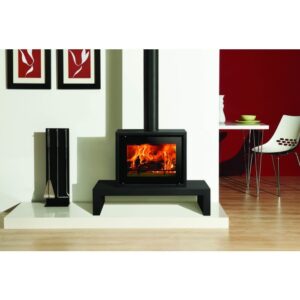Exploring Ecodesign Stoves and the Clean Air Strategy
In an era where environmental consciousness is paramount, the quest for sustainable living extends to every facet of our daily lives. One crucial area of focus is heating solutions, particularly in homes where traditional wood-burning stoves have long been a staple. The emergence of Ecodesign stoves represents a significant leap forward in addressing environmental concerns while providing efficient heating solutions. Paired with governmental initiatives like the Clean Air Strategy, these innovations signal a promising shift towards cleaner, healthier living environments.
Understanding Ecodesign Stoves
Ecodesign stoves are the pinnacle of technological innovation in the heating industry. Designed with efficiency and sustainability in mind, these stoves adhere to stringent European Union regulations aimed at reducing emissions and enhancing energy performance. Unlike their conventional counterparts, Ecodesign stoves utilise advanced combustion techniques and insulation materials to minimize pollutants and maximize heat output.
Key features of Ecodesign stoves include:
- Optimized Combustion: Ecodesign stoves employ sophisticated combustion systems that ensure thorough burning of wood or other biomass fuels. This results in significantly lower emissions of harmful gases such as carbon monoxide and particulate matter, thereby reducing environmental impact and promoting cleaner air quality.
- Enhanced Insulation: By incorporating high-quality insulation materials, Ecodesign stoves effectively retain heat within the combustion chamber, allowing for more efficient fuel consumption and heat distribution. This not only reduces energy wastage but also improves overall heating performance, ensuring greater comfort and warmth within the living space.
- Intelligent Design: From air intake mechanisms to exhaust systems, every aspect of Ecodesign stoves is meticulously engineered to minimize environmental footprint while maximizing user convenience. Innovative features such as automatic air regulation and self-cleaning mechanisms streamline operation and maintenance, making these stoves practical and user-friendly.
The Clean Air Strategy: A Holistic Approach to Air Quality
Complementing the rise of Ecodesign stoves is the Clean Air Strategy, a comprehensive initiative adopted by governments worldwide to combat air pollution and safeguard public health. Grounded in scientific research and collaborative action, this strategy encompasses a wide range of measures aimed at reducing emissions from various sources, including domestic heating systems.
Key components of the Clean Air Strategy include:
- Emission Reduction Targets: Central to the Clean Air Strategy are ambitious targets for reducing harmful emissions, particularly those stemming from residential heating and transportation. By setting clear objectives and timelines, governments seek to incentivize the adoption of cleaner technologies and practices across industries.
- Regulatory Frameworks: Through stringent regulations and standards, the Clean Air Strategy seeks to drive innovation and accountability within the manufacturing and energy sectors. By mandating the use of Ecodesign principles and emission limits for heating appliances, policymakers aim to promote the widespread adoption of cleaner, more sustainable technologies.
- Public Awareness and Engagement: Education and outreach play a pivotal role in the success of the Clean Air Strategy. By raising awareness about the health and environmental implications of air pollution, governments empower citizens to make informed choices and take proactive measures to reduce their carbon footprint. From public campaigns to educational programs, efforts to foster behavioural change are integral to achieving long-term air quality goals.
Embracing a Sustainable Future
As Ecodesign stoves continue to gain traction in the market, and the Clean Air Strategy gains momentum on the policy front, the stage is set for a transformative shift towards cleaner, healthier living environments. By harnessing the power of innovation, collaboration, and informed decision-making, societies around the world can pave the way for a more sustainable future—one where clean air is not just a lofty aspiration, but a fundamental right for generations to come.
In conclusion, Ecodesign stoves and the Clean Air Strategy represent significant milestones in the global quest for environmental stewardship and public health. Through their combined efforts, we have the opportunity to redefine the way we heat our homes, mitigate air pollution, and safeguard the well-being of current and future generations. As we embrace the principles of sustainability and responsibility, let us remember that the journey towards clean air begins with each of us, one Ecodesign stove at a time.
Have a look at our range of stoves here - https://www.victorianfireplaces.com/stoves.html


